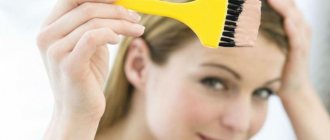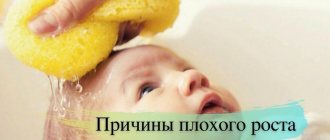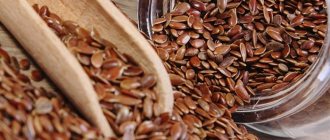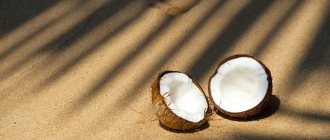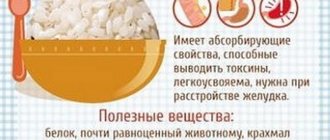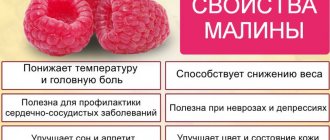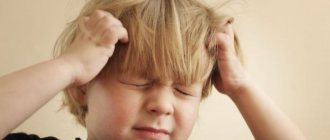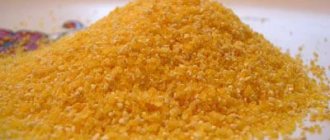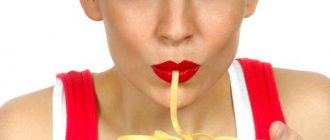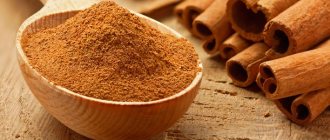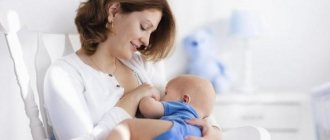Changes in hormonal levels during pregnancy and after childbirth affect the condition of the hair - they always reflect the state of the body and are sensitive to changes in the composition of the blood.
Such severe hair loss during breastfeeding causes some women to simply panic - after all, whole strands remain in their hands and in the bath.
Sometimes they are even ready to wean the child from the breast, since they blame breastfeeding for the hair loss. What to do in this case - to feed or not to feed?
Contrary to popular belief, hair loss after childbirth is not only due to breastfeeding and lack of vitamins. Below we will analyze all the reasons and give recommendations.
Hormonal background
During pregnancy, you experienced very little hair loss due to high levels of progesterone, and you are already accustomed to the pleasant feeling of a thick mane. But now the hairs, which have outlived their usefulness during this time, simply come out all at once. This is how hair loss occurs 2-6 months after childbirth and lasts about six months.
This is a normal phenomenon, you need to be prepared for it and not be afraid. Physiological hair loss can reach up to 30%. If you are still concerned about the duration and degree of hair loss or the appearance of bald patches, be sure to consult a doctor.
Only a trichologist can adequately assess their condition and prescribe the necessary examinations and treatment. You may need to consult an endocrinologist if the prolapse is related to the thyroid gland.
Which doctors should I contact if I have hair loss >>>
The condition of hair after childbirth depends not only on the female hormones estrogen and progesterone, but also on another hormone - prolactin.
Prolactin is on our side in this situation, it stimulates hair growth, and its level increases during lactation, that is, breastfeeding. It has been noticed that when a baby is weaned early, hair falls out more.
Breastfeeding is a natural state for the female body, and it is under this condition that the hormonal levels return to normal in the most natural way.
So breastfeeding longer is very important for your baby, and the effect on hair is a nice bonus.
The main cause of postpartum hair loss
This process is explained by a sharp decrease in the amount of female sex hormones estrogen, which are abundantly present in the body during pregnancy.
During pregnancy, the source of estrogen is, in fact, the placenta. Many women note that all these months, while the amount of estrogen in the body remained high, they noticed an improvement in the quality of their hair, and in natural blondes their color sometimes even changes.
Female hormones prolong the life cycle of hair, help it become thicker and fall out less. Unfortunately, such positive changes do not last long and are replaced by negative ones.
Nutrition and vitamins
After childbirth and during breastfeeding, we suffer from anemia, deficiency of vitamins and microelements, a significant amount of which is given to the baby along with breast milk. But this is not at all a reason to stop breastfeeding prematurely, because this is the most valuable thing a mother can give to her baby. What does breastfeeding give to mother and child>>>
In addition to this, many young mothers unnecessarily limit themselves in many products in order to avoid allergies and bloating in the baby. Or they strive to regain their slimness and go on a diet. As a result of hypovitaminosis and anemia, hair and nails become brittle and dull.
Nutrition must be complete and varied. Let it be simple, but high-quality, healthy and fresh products.
The most important vitamins and microelements for hair are vitamins A, D, E, C, group B, calcium, zinc, silicon, iron. A sufficient amount of protein is also necessary.
Hair is not a vital organ, so its nutrition occurs on a residual basis. And when there is a deficiency of nutrients, the hair loses them first.
The diet of a nursing woman should be rich in the following foods:
- Cheese, cottage cheese, fermented milk products are a source of protein and calcium.
- Boiled fish is a source of vitamin D and protein, and fatty fish is a source of omega-3 fatty acids.
- Cauliflower and broccoli are safe for breastfeeding and are rich in vitamin C.
- Fresh and boiled carrots contain a large amount of vitamin A.
- Buckwheat is hypoallergenic and incredibly healthy for a young mother, rich in vitamins and microelements, iron and protein are especially important for us.
- Other porridges (oatmeal, millet) contain not only carbohydrates, but also microelements.
- Various nuts and seeds provide protein, healthy fats, microelements, and fat-soluble vitamins.
- Fruits, dried fruits.
- Vegetable oils - olive, flaxseed - are necessary for the normal synthesis of sex hormones, a source of vitamins, omega-3.
- Meat, liver to restore iron levels.
And of course, you need to give up unhealthy foods, fast food, and drink more clean water.
Take dietary supplements and multivitamins recommended for breastfeeding women:
- Calcemin – calcium preparation and vitamin D3
- Vitrum Prenatal Forte (vitamins and minerals)
- Elevit Pronatal
- Complimentary Mom
- omega-3 fatty acids
- linseed oil
- fish fat
- iron and iodine supplements as prescribed by a doctor
As for vitamins, a nursing mother should be careful when taking them and consult a doctor. It is advisable to first take tests and determine what substances you are missing. Uncontrolled use of vitamins can be harmful.
Trichologist's advice
Trichologists advise mothers not to forget about daily hair care. Just a few banal recommendations that are often forgotten in the hustle and bustle of everyday life:
- The comb must be suitable for your hair type and have wooden teeth.
- Tight ponytails and braids are prohibited.
- The use of a hair dryer, curling iron, as well as various heat treatments of curls should be kept to a minimum.
- Massage your scalp daily to improve blood circulation.
- Follow the recommendations for caring for your hair in different seasons of the year.
Also try not to abuse medications and treat emerging diseases (ARVI, inflammation and others) with the help of folk recipes, which contain components that are not dangerous to the child. This is in case you experience hair loss while breastfeeding.
Stress and lack of sleep
Childbirth itself is already a lot of stress and a very energy-consuming process. By the way, it has been noted that anesthesia (if it was during a caesarean section) often causes hair loss. Then a difficult period of establishing breastfeeding, postpartum depression, weakness due to anemia and hypovitaminosis...
With the birth of a child, life changes completely; some mothers are literally deprived of sleep and rest and are in a state of chronic stress and lack of sleep. And stress always causes hair loss.
Even just a lack of time for self-care (and often material resources) entails a deterioration in the condition of the hair.
Tips for recovery after childbirth:
- Do not immediately rush home from the maternity hospital to put things in order at home. It is best to spend a few days in bed with your baby. This will allow you to rest, get enough sleep, improve breastfeeding, and allow your internal organs to recover and return to their places after pregnancy.
- Do not hesitate to ask relatives for help, invite a cleaner or an au pair.
- Do everything possible to rest as much as possible, get enough sleep, and walk in the fresh air. Follow the regime, go to bed before 11 pm, as at this time the body recovers best and produces hormones necessary for health and beauty.
- If necessary, use light sedatives of plant origin - valerian, motherwort. They will help improve sleep and fight stress.
Recommendations for hair care during lactation
- Replace aggressive products (shampoos with SLS, silicones, masks that irritate the scalp) with soft, safe, organic ones.
- You should wash your hair with warm water. It is advisable to soften hard tap water by boiling, settling
- Avoid dyeing and perming, styling with a hairdryer and curling iron for a while, and dry your hair naturally.
- Rinse your hair after washing with herbal decoctions: chamomile, calendula, nettle, horsetail, hop cones, burdock root. You can apply natural preparations to the scalp: aloe vera gel, mint spray.
- Every day, gently comb your hair for a few minutes; this is an excellent massage for strengthening the roots and improving blood circulation in the scalp. You can massage your head with your fingers, it is very pleasant and useful.
- Do not constantly collect your hair in tight hairstyles - a ponytail, a bun, a bun, as the blood circulation of the hair follicles is disrupted. Use safe hairpins and elastic bands, without sharp metal elements.
- Make natural homemade masks. Course of 10 masks, 1-2 times a week.
Hair masks
Since there is no time for complex care, and it would be worth saving, then choose the simplest and most natural masks.
- Oils – burdock, olive, almond, flaxseed, peach, coconut, avocado. To strengthen roots, shine, prevent dullness and split ends. Just apply any warm oil to the scalp and along the entire length of the hair for half an hour to an hour, then you need to wash your hair, lathering it twice.
- Fermented milk products - kefir, sour cream, yogurt - take very good care of your curls, moisturize them and give them a healthy shine.
- Colorless henna strengthens hair and adds volume. Brew a packet of henna with boiling water, let it brew for a while and apply to each strand, leave for 20 minutes and rinse your hair thoroughly.
- Cosmetic clay (blue, green, white) nourishes hair, absorbs excess sebum well, and is rich in microelements. Dilute the clay with water and spread over the scalp and entire length (you can also apply it to your face). After 15 minutes, wash off.
- Egg yolk can be used instead of shampoo and as a mask at the same time. The hair is washed well, acquires shine and silkiness, and receives vitamins and microelements.
- Black bread mask to strengthen hair. Take a crumb of black bread, brew it with boiling water, let it brew for a while and mash it into a paste with a fork. This mask nourishes hair, strengthens and revitalizes. But it can be difficult to rinse your hair of crumbs; it is better to rinse it in a bowl of water.
Be sure to watch this useful video from breastfeeding expert Lyudmila Sharova:
A haircut
If you did not cut your hair during pregnancy, your hair has grown significantly and, accordingly, has become heavier. Under the influence of progesterone, the hair follicles could withstand such a load, but now the severity increases the loss. Therefore, a haircut, even a small one, will be beneficial.
Even emotionally, during postpartum depression and chronic stress, going to the hairdresser and changing your hairstyle will serve as psychotherapy.
Is it possible to dye your hair while breastfeeding?
Many masters will tell you that it is possible, just be careful. This may even be written on packages of dyes. But who will give a guarantee? It is better to choose natural dyes.
In addition, staining results may be unexpected due to changes in hormonal levels. Read more about this in the article “Is it possible to dye your hair during pregnancy” >>>
Comment from our expert
Anna Bogdanova, obstetrician-gynecologist
“The article absolutely correctly describes the causes of hair loss after childbirth. Everything matters - nutrition, daily routine, and stress level; against this background, chronic diseases may worsen or new ones may appear for the first time.
Take care of yourself, take care of your hair and scalp in a timely manner, visit the hairdresser, eat well, walk more. If your diet lacks vitamins and minerals, make up for the deficiency with medications.”
